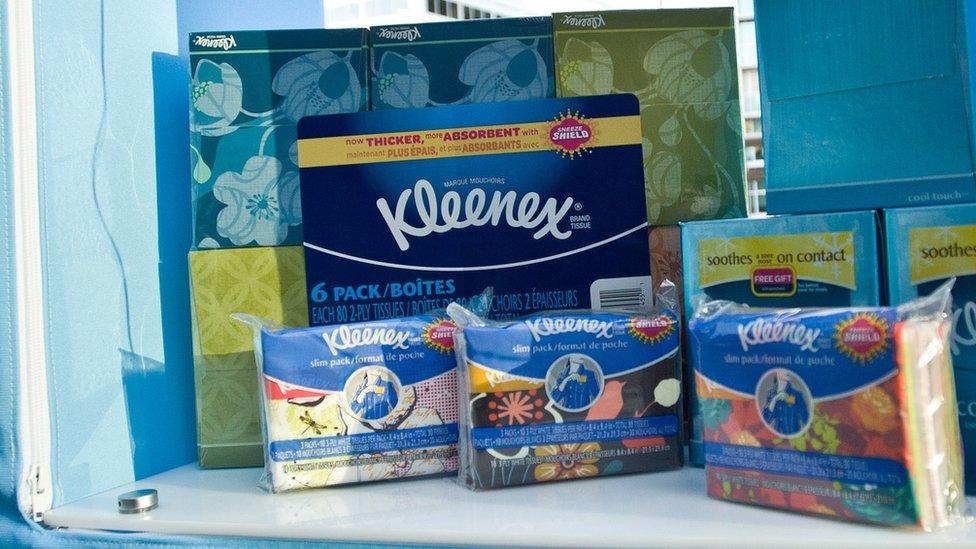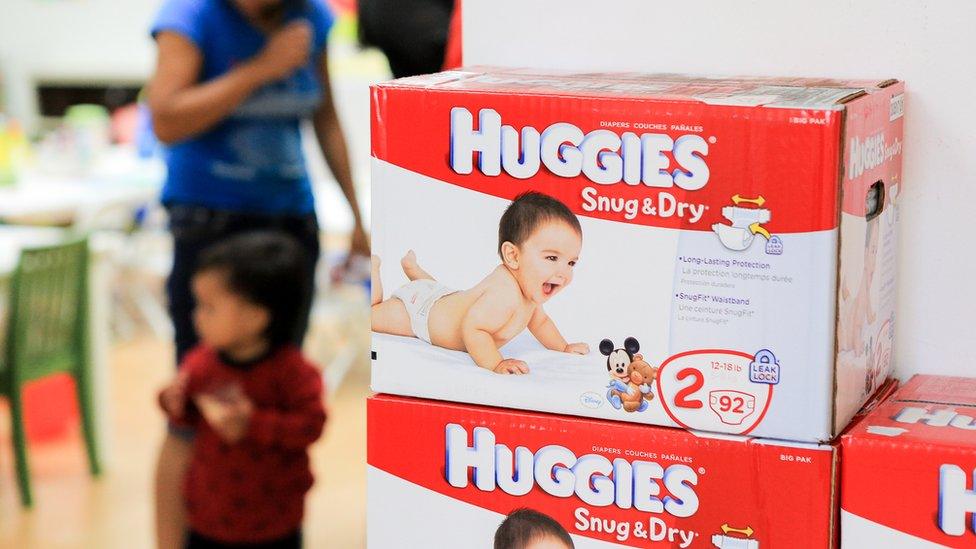Kleenex-maker Kimberly-Clark to cut at least 5,000 jobs
- Published
- comments

Kleenex-maker Kimberly-Clark has said it will close or sell 10 manufacturing plants and cut at least 5,000 jobs - about 12% of its workforce.
The move comes as the Texas company struggles to lift sales. In the fourth quarter of 2017, sales rose by just 1%.
Kimberly-Clark said the restructuring would streamline its supply chain, saving at least $500m by the end of 2021.
The savings are in addition to a plan to reduce costs by $1.5bn in that time.
Kimberly-Clark chief executive Thomas J Falk said the restructuring - which carries costs of as much as $1.9bn by 2020 - will make the company "leaner, stronger and faster".
"These are difficult but necessary actions to make Kimberly Clark an even stronger company going forward," he said on a phone call with financial analysts on Tuesday.
In a statement, he described market conditions as "challenging".
The company has been forced to cut prices amid competition from rivals and store brands, even as the cost of some raw materials has increased.
In addition, executives said the firm has been hurt by declining birth rates in key markets, such as the US and South Korea, which have reduced demand for diapers and other staples.
"You can't encourage moms to use more diapers... when the babies aren't being born," Mr Falk said.

The firm, which sells items under the Andrex and Huggies brands, reported $617m in profits in the fourth quarter on sales of $4.6bn.
For the year as a whole, sales were $18.2bn, almost unchanged from 2016, while profits rose 5% to $2.28bn.
Executives said they are hopeful that prices have stabilised. The firm predicted that sales would rise by between 1% and 2% this year.
It is banking on a suite of new products to drive growth. The company is also investing in its digital sales, an important part of growth in markets such as China. Online sales represent more than half of the firm's business in China.
Kimberly-Clark, which has more than 90 facilities globally including those of affiliates, did not say which plants it intended to close. It said it expected the job cuts to occur across geographies and business units.
It also plans to expand in some locations and spend at least $2.1bn on share buybacks and dividends.